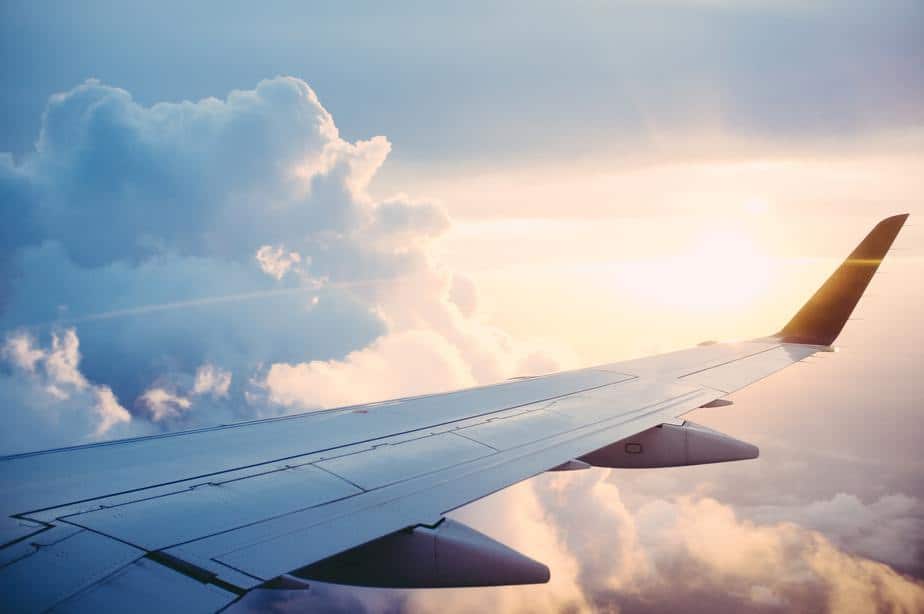If you are on the final day of your vacation and your flight isn’t until the afternoon or nighttime, you might be wondering if you can squeeze in one last snorkeling session before going on the airplane. After all, even if you only have half a day, why not make the most of your vacation? Well, you might be a bit hesitant because you heard some scuba divers say that it’s not safe to fly too soon after diving. Perhaps this applies to snorkeling as well?
Thankfully, it’s perfectly safe for snorkelers to snorkel and fly on the same day. Heck, it might even be a good idea so that you can expend your energy and fall asleep on the flight. Even if you were duck diving, it’s highly unlikely that you have absorbed enough nitrogen into your system to cause decompression sickness. So go ahead, snorkel to your heart’s content. Just make sure you don’t lose track of time and miss your flight!
In this article, we’ll discuss why snorkelers don’t need to worry about surface intervals or no-fly times whereas scuba divers and freedivers do.
Can I fly immediately after snorkeling?
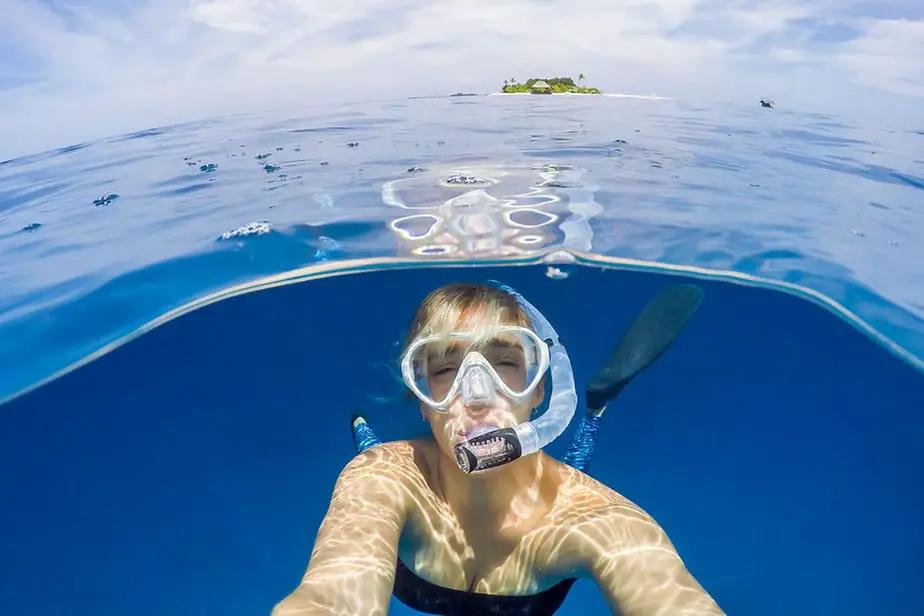
Yes, you can fly right after snorkeling. You don’t have to wait at all before going on an airplane. Do you worry about whether it’s safe to go on an airplane after you finish swimming? Of course not. Snorkeling is very similar to swimming in this regard.
Snorkeling and swimming share similar risks. Snorkeling may even be safer because there is an expectation to wear a flotation device. They also share many benefits. For instance, both snorkelers and swimmers breathe atmospheric air – air that is not under any extra pressure.
This is the big difference between snorkeling/swimming and scuba diving/freediving. Issues arise when we breathe compressed air, which we’ll explain in the next section. Even if a snorkeler duck dives, it’s not likely that it will cause any problems when going on an airplane soon after.
For now, just understand that snorkelers breathe non-pressurized air and therefore have not undergone any physiological changes, so it’s perfectly fine to snorkel before flying.
Practically speaking, there will always be a delay between snorkeling and flying anyways. I don’t know about you, but I tend to arrive 2-3 hours before the departure time to ensure I never miss a flight. So, either way, there will be a bit of a wait time regardless. What little nitrogen that is absorbed into the system from duck diving would surely have off-gassed in that time.
If you haven’t duck dived at all, then the air in your system is the same atmospheric air that everybody else is breathing, so you can board a plane right away with no issues.
Why do scuba divers and freedivers need to wait before flying?
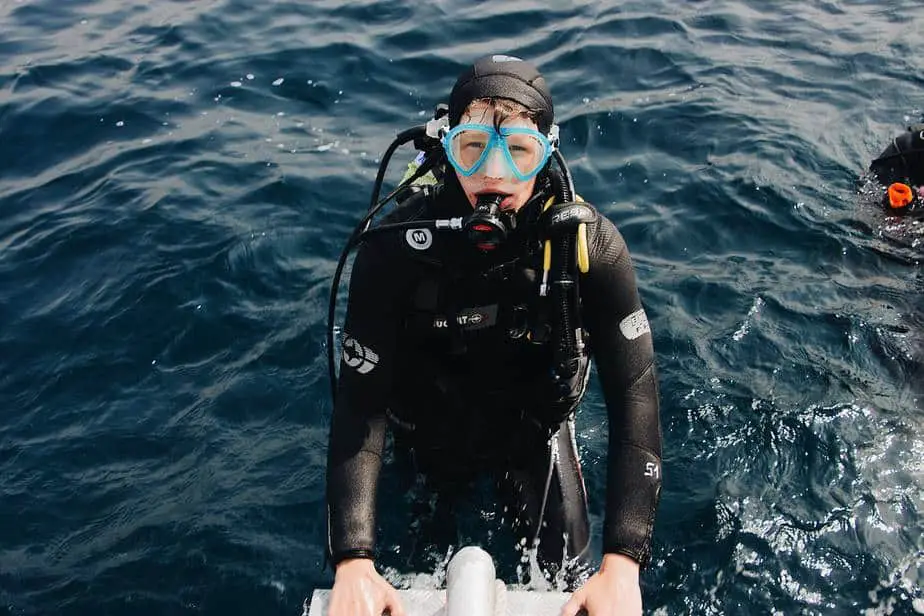
The reason why scuba divers and freedivers must wait before flying is because they want to avoid decompression sickness, otherwise known as the bends. For the same reasons, they should also avoid going to high altitudes such as up a mountain for a hike.
Decompression sickness (DCS) is what happens when the nitrogen gas that has been absorbed into their body from breathing compressed air comes out of solution too quickly. This occurs when they go from a higher pressure environment (e.g. any depth below sea level) to a lower pressure environment (e.g. sea level and higher).
The released nitrogen can form bubbles in various places throughout the body. The bubbles tend to accumulate around the joints, causing them to stiffen up and stay in a bent position, hence the nickname. However, if the nitrogen bubbles can appear anywhere and if they reach the brain, spine, or any critical area, it can result in paralysis and death.
Thus, DCS is extremely dangerous and one must go to any length to avoid it, even if that means not scuba diving for half a day or an entire day before getting on an airplane.
During that time, known as the no-fly time, divers should simply remain at sea level and let their body slowly off-gas the absorbed nitrogen at a safe rate. Flying too soon puts the diver in an even lower pressure environment than sea level, letting the nitrogen come out of solution too quickly and forming bubbles.
To minimize the risk, divers are recommended to wait anywhere from 12 to 24 hours after scuba diving before getting on an airplane.
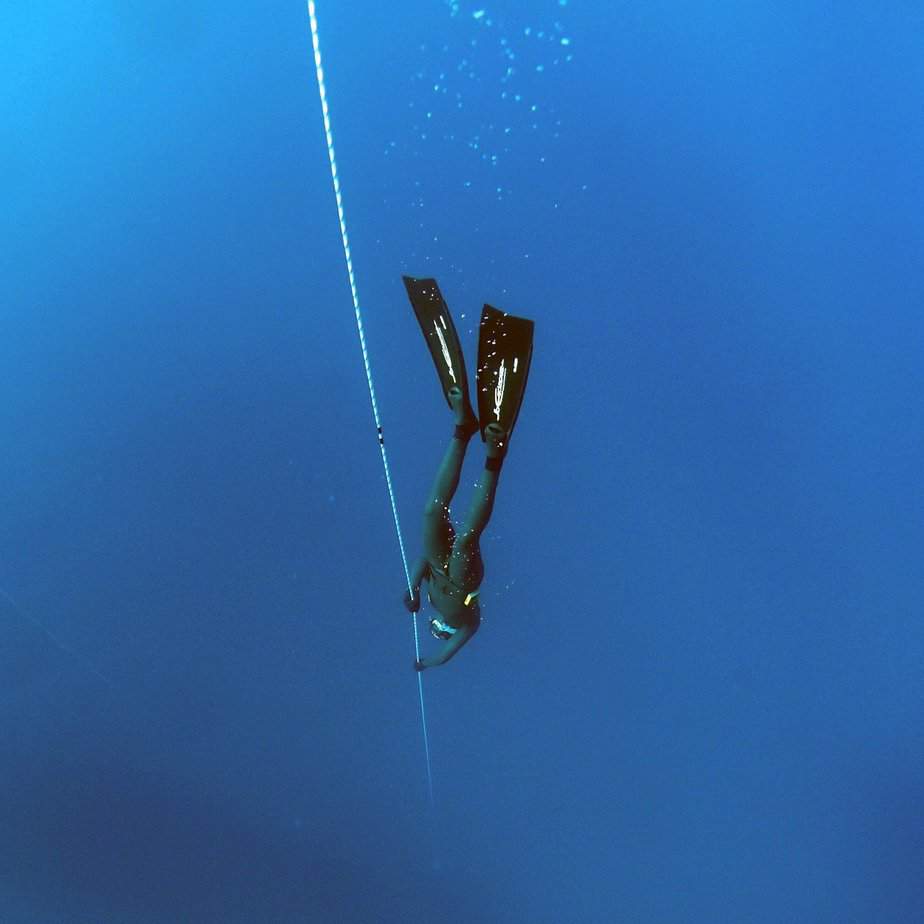
Even freedivers are susceptible to DCS because they can reach depths where the pressure is quite extreme. If they do enough dives in a day, then they would also have spent a similar amount of time underwater as a scuba diver, and thus nitrogen would have also been absorbed into their system.
Snorkelers and freedivers don’t need to be as concerned with DCS because they spend their time at the surface breathing non-pressurized air. Even if they duck dive, it’s unlikely they can reach the lengths and depths that a freediver would.
In fact, many scuba divers often spend their final day snorkeling so that they can safely experience the underwater world one last time while off-gassing the nitrogen. They should not attempt to dive anymore, but they can still enjoy the sights.
What if I spent the whole day duck diving?
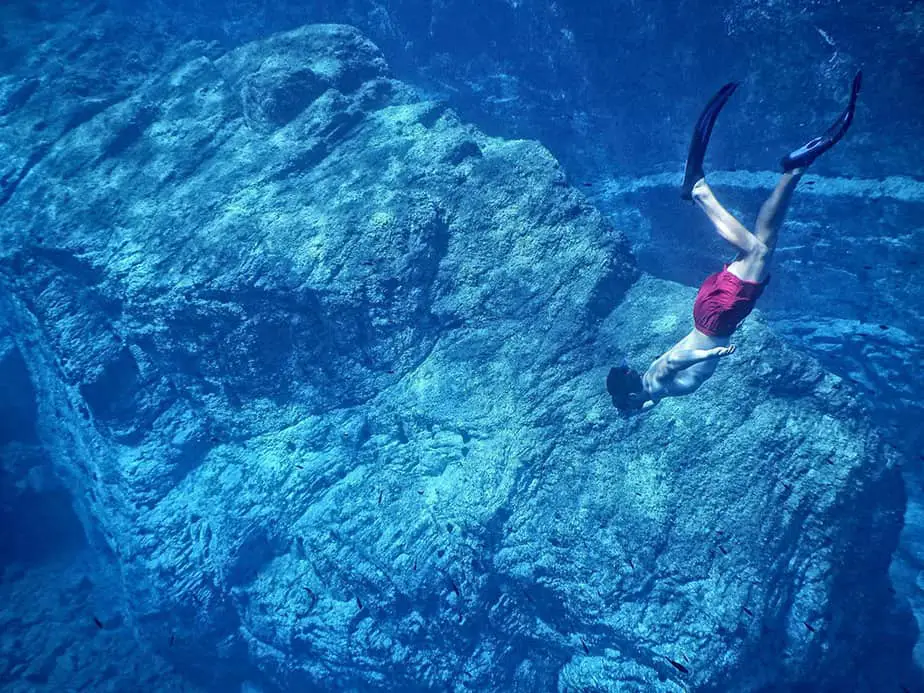
Again, unless you also happen to be a world class freediver and your “duck dives” resemble a freedive, then you do not need to worry about duck diving causing DCS. The time an average snorkeler spends underwater and the depths they’ll reach are negligible.
Even if you spent a significant amount of time duck diving, you might think that you’ve accumulated enough time underwater that your risk of DCS is comparable to a scuba diver.
Let’s reference a dive table and see how likely you are to exceed the no-decompression limit, which is the amount of time you can spend underwater at certain depths without worrying about too much nitrogen entering your system and requiring a significant amount of time off-gassing.
At a depth of 35 feet, divers can spend 205 minutes underwater without needing to off-gas. However, a diver can only spend 9 minutes at a depth of 140 feet before they need to perform a mandatory decompression stop (when a scuba diver cannot surface right away and must spend some time at higher depths to off-gas).
As a snorkeler who also duck dives, how likely are you to spend over three hours total at a depth of 35 feet, even if you’ve been diving all day? How about 9 total minutes at 140 ft? You would have to be a world class freediver to accomplish those feats.
Plus, unlike a scuba diver, you will frequently surface and recover your breath for the next dive. These surface intervals between dives gives the body time to safely off-gas, so even the numbers given by the dive table don’t really apply here.
A problem that you legitimately do need to worry about as a freediver is if you have trouble equalizing your ears. If you experience ear pain while duck diving, then that is a sign that you aren’t equalizing soon enough.
Not equalizing your ears can cause the pressure differential to rupture your eardrums.
Is there any way for snorkelers to get the bends?
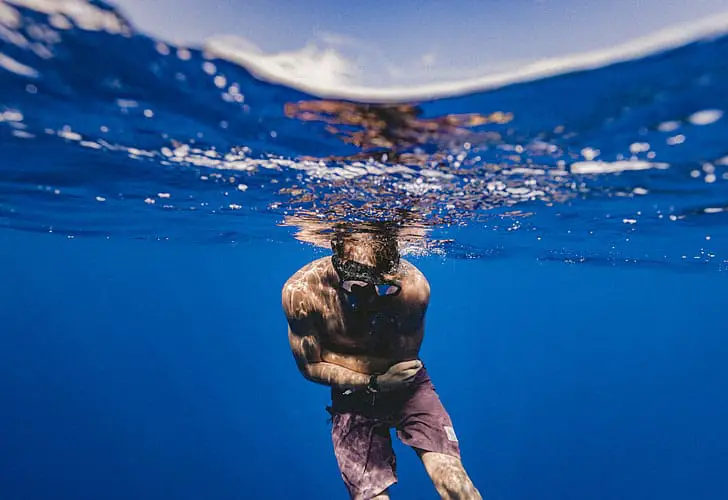
It is so highly unlikely for a snorkeler to get the bends that we can basically say that they won’t. For it to happen, it would require a couple of extreme edge cases to occur.
The first edge case is what we described above – if a world class freediver decided they wanted to do the deepest and longest duck dives possible. If that were true, then that person wouldn’t really be snorkeling, but rather full-on training for freediving. It might also be possible for a world class spearfisherman (spearo) to do multiple long breath-hold dives that puts them at risk of DCS.
The second edge case is if the snorkeler was somehow able to breathe compressed air. This can occur if the snorkeler met up with a scuba diver underwater and took a few breaths from the regulator (why one would do this I have no idea), or more likely, if a snorkeler decided to use a mini scuba tank.
A mini scuba tank is an apt description for what it is. They are an attractive option for snorkelers who are not particularly good with breath-hold dives and want to stay underwater for much longer. If a snorkeler were to have access to multiple mini scuba tanks and use one for each duck dive, then what they are doing is akin to scuba diving.
Combine that with an over-eager attitude to dive as much as possible without regard for surface intervals, then that individual may not be giving themselves enough time to off-gas the nitrogen and placing themselves at risk of DCS.
It is highly unlikely that what was described in this section will apply to anyone except to 0.001% of all snorkelers. Yea, I just made up a percentage, but the point is you shouldn’t worry about getting DCS as a snorkeler.
How to safely snorkel before flying
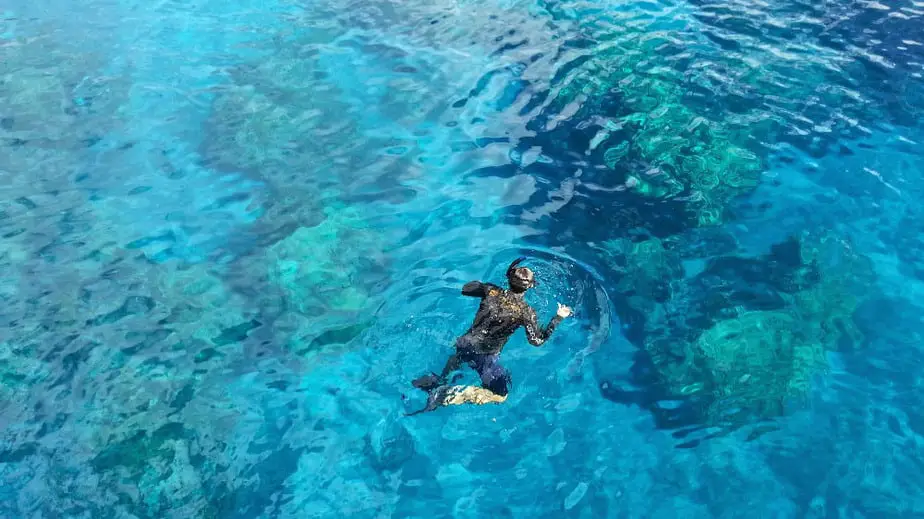
So, putting all of this information together, how can you safely snorkel before flying so as to avoid getting the bends?
One easy way is to completely avoid duck diving. If you remain at the surface, then you are not absorbing extra nitrogen into your system, and therefore you need not worry about rapidly off-gassing at high altitudes.
Another way is to give yourself enough rest between duck dives so that any excess nitrogen in your system is safely off-gassed. You should have a surface interval (time spent at the surface between dives) of at least 2-3x the length of the dive. So if you can hold your breath for 1 minute, your minimum surface interval ought to be 2-3 minutes.
Do not rely on a mini scuba tank when snorkeling. There is a reason why scuba divers need to pass a course and receive a certification before they are allowed to dive with compressed air. If you do not know about the dangers of decompression sickness and how to avoid them, then do not use a mini scuba tank.
Also make sure to drink plenty of fluids, primarily water or a sports drink. It is known that dehydration can make you more susceptible to decompression sickness. It is quite easy to get dehydrated while snorkeling due to the warm temperatures and physical exertion of snorkeling. Either bring a water bottle with you or head back to the boat/shore to rehydrate periodically.
Avoid alcohol or caffeine products because they are known to dehydrate you further. These drinks are diuretics, meaning they cause your body to lose fluids more than they replenish. For instance, they can cause an increase in urine production, causing a loss of fluid through urination more than what you drank.
Parting words
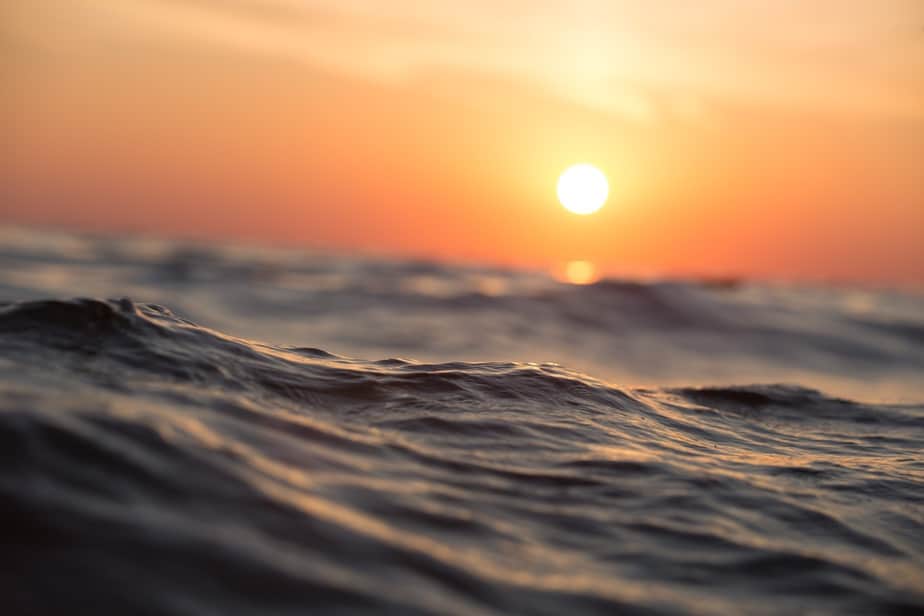
To sum it up, snorkelers don’t have the same decompression issues as scuba divers since they are not subjected to the same pressures. Snorkelers spend most of their time by the surface breathing atmospheric air, and they don’t dive deep or long enough to absorb enough nitrogen such that DCS is a risk.
Even if they duck dive, the fact that snorkelers can surface between dives instead of performing one long, sustained dive means that they have time to off-gas between dives. This further decreases their risk of DCS.
As such, snorkelers do not need to wait any time at all prior to getting on a flight. On the other hand, scuba divers and advanced freedivers/spearos should leave anywhere from 12 to 24 hours time to off-gas before they go to high altitudes.
If you love snorkeling and it’s the last day of your vacation before you need to fly home, then by all means, snorkel to your heart’s content.

